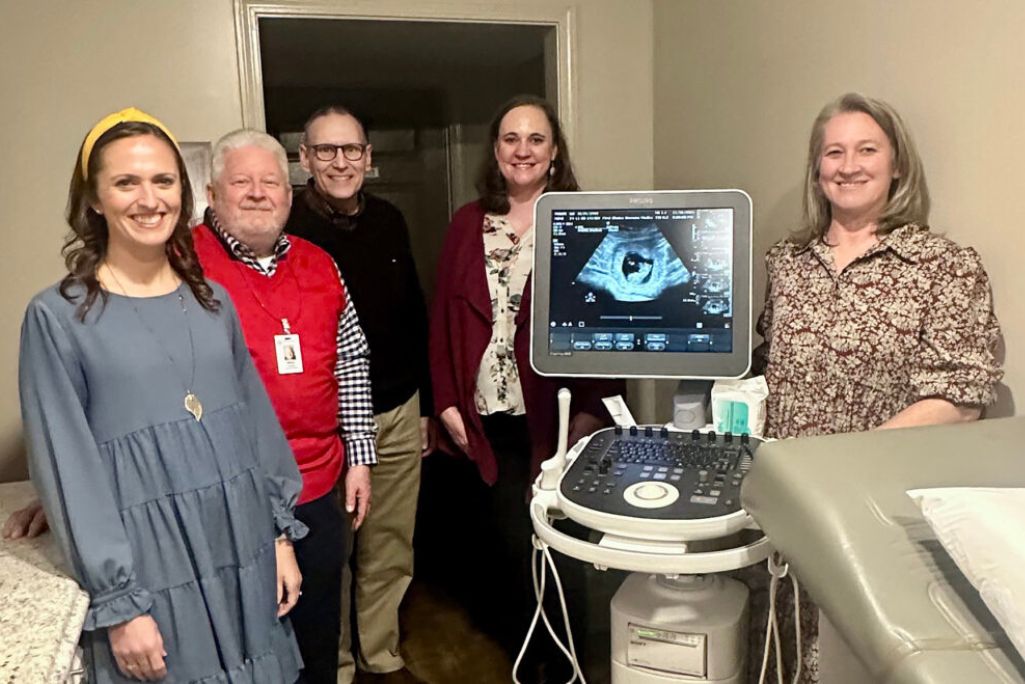The Southern Baptist Convention’s (SBC) ethics entity and other pro-life organizations are urging Congress to restore long-standing bans on federal funding of abortion that President Joe Biden excluded from his proposed budget.
On May 28, Biden released a $6 trillion budget proposal for fiscal year 2022 that failed to include the 45-year-old Hyde Amendment and other pro-life policies in federal programs. If Biden’s proposal succeeds, it would mark the first time since 1976 the Hyde Amendment has not been enacted.
The Hyde Amendment, which must be approved each year as a “rider” to a spending bill, prohibits federal funds in Medicaid and other programs from paying for abortions. The ban is estimated to have saved the lives of more than 2 million unborn children.
The Senate, which is equally divided by party, provides hope that pro-lifers will be able to prevent eventual elimination of the Hyde Amendment and other pro-life riders from the budget. Forty-eight Republican senators have promised they will vote to block attempts to eradicate or diminish such protections in a chamber that requires 60 votes to end a filibuster intended to block passage of a proposal.
The Ethics & Religious Liberty Commission (ERLC) maintained its call for protection of the Hyde Amendment and other abortion funding bans.
“While this move by the Biden administration is unsurprising, it is a harmful departure from accepted precedent,” said Elizabeth Graham, the ERLC’s vice president of operations and life initiatives. “Thankfully, this is just a proposal. Congress should ignore this and recommit to including the Hyde Amendment – as well as all pro-life policy riders – to ensure no taxpayer resources are used for abortion.
“The protection of preborn lives and safeguarding of taxpayer consciences are not areas to be compromised.”
In a letter the day before Biden released his proposed budget, more than 60 pro-life leaders asked party leadership in both the Senate and House of Representatives to maintain the bans on federal money for abortions. Among the signers of the May 27 letter was then-ERLC President Russell Moore.
“Congress has the duty and privilege to continue this legacy of protecting the vulnerable,” the letter said. “There has never been such an important time for Congress to recognize the dignity of every life by reaffirming support and retaining the Hyde family of pro-life protections” in the 2022 budget.
Moore – who made a similar request of congressional leaders in a February letter – announced May 18 his departure from the ERLC after eight years to serve as public theologian for Christianity Today magazine and to lead its new Public Theology Project. His resignation became effective June 1.
Jennifer Popik, legislative director for the National Right to Life Committee, said in a written statement the Hyde Amendment “has proven to be the greatest domestic abortion-reduction measure ever enacted by Congress. The Hyde Amendment’s life-affirming impact cannot be overstated.”
On Twitter, Democrats for Life of America called it “a crucial moment for the pro-life movement. Every pro-life American, regardless of political affiliation, must rally and lobby their legislators to include the Hyde Amendment in spending bills.”
Abortion-rights advocates hailed Biden’s decision to exclude Hyde.
Alexis McGill Johnson, president of Planned Parenthood Federation of America, described it as “a historic step in the fight for reproductive freedom.” She called the Hyde Amendment “racist, sexist, deeply unjust, and immensely unpopular.”
A majority of Americans, however, support such bans. A January public opinion survey found 58% of adults “oppose” or “strongly oppose” taxpayer funding of abortion domestically. The survey, released by Marist Poll and commissioned by The Knights of Columbus, also showed opposition by 31% of Democrats and 34% of those who identified themselves as pro-choice.
Biden supported the Hyde Amendment during his 36 years in the Senate but reversed his position while running for the Democratic presidential nomination in 2019.
Democratic opposition to what was once a bipartisan amendment has grown in recent years. Leaders in the Democratic-controlled House have told some members they would not include the Hyde Amendment in spending bills this year, the Los Angeles Times reported. Democrats who oppose Hyde describe it as a justice issue for low-income and minority women.
In addition to Hyde, riders the ERLC and other pro-life organizations are calling for Congress to continue to approve are the:
- Weldon Amendment, which has barred since 2004 funding for government programs that discriminate against health care providers – individuals or institutions – that object to abortion.
- Helms Amendment, a rider first approved in 1973 that prohibits foreign aid funds from being used for abortion as a method of family planning.
- Kemp-Kasten Amendment, a 1985 measure that bans family planning money from going to any organization that is involved in a program of forced abortion or sterilization.
- Dornan Amendment, a rider first approved in 1988 that has barred in most of the years since federal funds, as well as congressionally approved local ones, from paying for elective abortions in the District of Columbia.
- Siljander Amendment, which has prohibited foreign assistance funds from covering the cost of lobbying for or against abortion since 1981.
Biden’s proposed budget would eliminate the Dornan Amendment and undermine the Helms, Kemp-Kasten and Siljander amendments, according to a congressional staff analysis referenced by the National Right to Life Committee.
Medicaid funded about 300,000 abortions in the year before the late Rep. Henry Hyde, R-Ill., gained adoption of his amendment for the first time in 1976. The measure has saved the lives of more than 2.4 million unborn children, according to an estimate in July 2020 by Michael New, associate scholar of the pro-life Charlotte Lozier Institute. The amendment, which became the general label for such bans in federal health programs, includes exceptions for a threat to the mother’s life, rape and incest.
The ERLC, which has worked for a comprehensive ban on federal funding of abortions, has included the protection of pro-life “riders” in spending legislation as one of its priorities in its 2021 Public Policy Agenda.
On the day Biden issued his proposed budget, the ERLC celebrated the placement of an ultrasound machine at the Safe Harbor Pregnancy Medical Center in Pensacola, Fla., through the entity’s Psalm 139 Project. The ELRC made the placement in partnership with Florida Baptist Financial Services. The ERLC plans to place 20 to 25 ultrasound machines through Psalm 139 this year at pro-life pregnancy centers.
(EDITOR’S NOTE – Tom Strode is Washington bureau chief for Baptist Press.)


